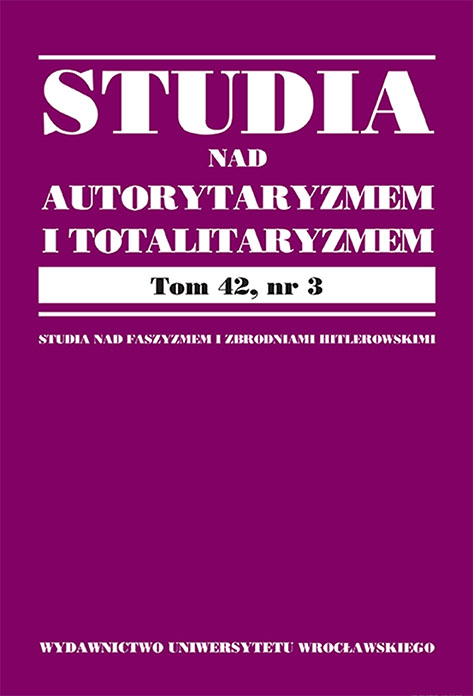

Articles

In recent years, a crisis of demoliberal hegemony has emerged in many countries of the broadly understood West. The considerations in this article focus primarily on the juridical dimension of the crisis of liberal democracy. The key issue is genealogy, history, and the process of decomposing faith in the apolitical nature of the discursive rules of jurisprudence. The assumption of the objectivity of these rules and their exceptional status is considered an important object of attack by those contemporary opponents of the ancien regime who focus on legal issues. Such a situation allows us to compare the present decline of demoliberal hegemony to the first significant crisis of liberal theoretical and practical constructions, symbolically exemplified by the dispute between Hans Kelsen and Carl Schmitt in the sphere of German legal culture. In our contemporary discourse questioning the assumptions of the demoliberal hegemonic formation, the themes undertaken by Schmitt constitute an important theoretical element. Undoubtedly, Kelsen’s way of thinking is strongly present in the discourse of defenders of the status quo. Of course, historical changes within the episteme had an impact on the use of old arguments. In other words, they are “different Schmitt” and “different Kelsen”. In this work, both names do not serve as an introduction to the objectivized exegesis of thinkers’ views. They are only symbols, or rather metaphors, of certain positions in a dispute that can be seen diachronically.
The final part of the article is devoted to an attempt to formulate certain program comments and fairly general postulates of such a reform of the rules of jurisprudence in the Polish context, which will allow to strengthen the chance for a convincing legitimization of its products. The article is written from the perspective of a critical theory of law, which is associated with avoiding legal metaphysics and foundationalism. The author assumes that gaining hegemony by a given set of discursive rules is the product of many contingent factors. In other words, individuals and groups (epistemic communities) are able to accept and internalize different knowledge and different sets of rules for their production. Nevertheless, a rather cautious assumption was made in the text that the most effective key to transforming the discourse is learning what has been recognized as flaws in its existing rules, i.e., what has been attacked. Future scenarios are not predictable, nevertheless the author outlines three directions of potential transformations of jurisprudence discourses, which are the most probable.